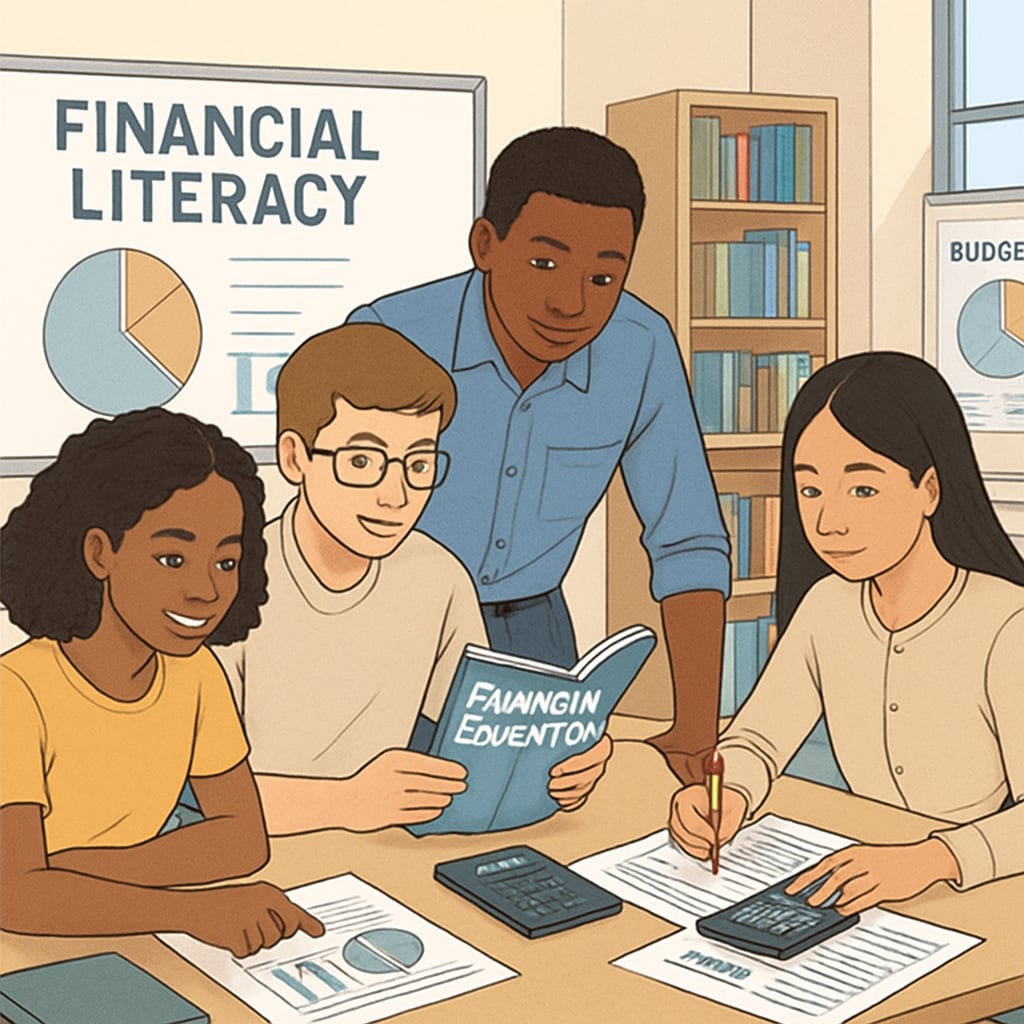In today’s interconnected world, career planning, financial education, and international mobility are more important than ever. For students in developing nations, these skills are not just desirable—they are essential. Early exposure to financial literacy and career awareness during the K12 years can open doors to opportunities both locally and globally. By equipping students with these tools, educators and policymakers can help them navigate their professional futures with confidence and resilience.
Why Financial Education Matters in the K12 Years
Financial education is the foundation for a successful career and personal life. Teaching students about money management, budgeting, and economic systems during their formative years prepares them for adulthood. In developing countries, where economic challenges can be significant, this knowledge is even more critical. Financial education enables students to make informed decisions, avoid debt, and recognize opportunities for growth.
For example, students who understand the value of saving and investing are more likely to achieve financial independence later in life. Additionally, financial literacy enhances their ability to evaluate career opportunities, negotiate salaries, and plan for long-term goals.
- Teaches essential financial concepts such as budgeting and saving
- Prepares students to handle economic challenges
- Encourages informed decision-making in personal and professional contexts

Career Planning as a Key to Future Success
Career planning is another essential skill that should be introduced early. Many students in developing countries face limited access to career guidance resources, which can hinder their ability to make informed decisions about their futures. By integrating career planning into the K12 curriculum, educators can help students identify their strengths, explore potential career paths, and develop the skills needed to achieve their goals.
Furthermore, career planning fosters adaptability—a crucial trait in today’s rapidly changing job market. Students learn to evaluate their options, set realistic goals, and adjust their plans as needed. This proactive approach not only increases their chances of success but also empowers them to take control of their professional lives.
- Helps students identify their interests and strengths
- Provides guidance for setting and achieving career goals
- Encourages adaptability in a dynamic job market

The Role of International Mobility in Career Development
In an increasingly globalized economy, international mobility has become a crucial component of career development. Students who are exposed to diverse cultures, languages, and work environments gain a competitive edge in the job market. For those in developing nations, this exposure can open doors to opportunities that were previously out of reach.
However, preparing students for international mobility requires more than just linguistic or cultural training. It involves equipping them with a global mindset—a way of thinking that values diversity, innovation, and collaboration. Schools can achieve this by offering exchange programs, incorporating global issues into the curriculum, and encouraging students to consider careers in international fields.
- Provides students with exposure to global opportunities
- Enhances adaptability and cross-cultural communication skills
- Encourages students to think beyond local job markets
Integrating Financial Education and Career Planning into K12 Curricula
To effectively prepare students for the challenges of the future, financial education and career planning must be seamlessly integrated into the K12 curriculum. This can be achieved through practical, hands-on activities, such as:
- Workshops on money management and budgeting
- Career fairs and mentorship programs
- Global awareness initiatives, including cultural exchange programs
By introducing these elements early, educators can create a generation of students who are financially literate, career-ready, and globally minded. These skills will not only benefit individuals but also contribute to the economic development of their communities and nations.
In conclusion, the combination of financial education, career planning, and international mobility is essential for students to thrive in the modern world. By starting in the K12 years, we can set them on a path to success—both at home and on the global stage.
Readability guidance: This article uses short paragraphs, lists, and clear transitions to enhance readability. Key concepts are introduced with examples, and passive voice is minimized to maintain an engaging tone. Images are placed strategically to complement the text.


